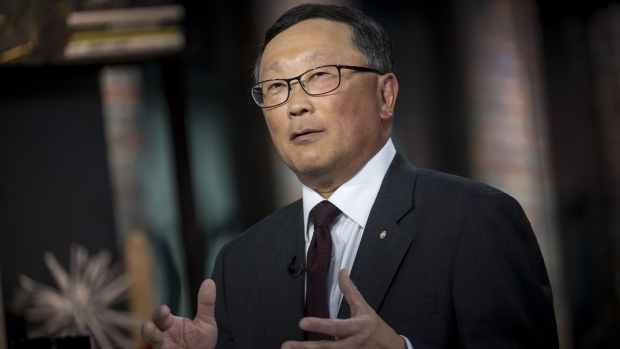Nov 16, 2018
BlackBerry to buy cybersecurity company Cylance for US$1.4 billion
, Bloomberg News

BlackBerry Ltd., the former mobile phone giant that’s now focused on producing software, is acquiring cybersecurity company Cylance Inc. for US$1.4 billion.
Waterloo, Ontario-based BlackBerry said the acquisition of Cylance would enable it to add artificial intelligence capabilities to its existing software products. It said the all-cash deal would close before the end of its current fiscal year in February 2019.
The purchase is BlackBerry’s largest acquisition in seven years, according to data compiled by Bloomberg.
“Cylance’s leadership in artificial intelligence and cybersecurity will immediately compliment our entire portfolio,” John Chen, BlackBerry’s chief executive officer, said in a statement.
Cylance, based in Irvine, California, makes AI-enabled software designed to protect mobile devices, tablets and other internet-connected devices from cyber attacks. The company’s software resides on these devices and is designed to work even when they’re not connected to a network and without consuming much power.
BlackBerry stopped designing smartphones in 2016 after struggling to keep pace with competition from Apple Inc. and Samsung Electronics Co. It’s been trying to reinvent itself as a provider of software for Internet-of-Things products and other so-called “embedded devices.”
Cylance said in June that its annual revenue in 2018 was about US$130 million and was growing at close to 90 per cent. It said that more than 3,500 businesses were using its products.
The Californian company has received about US$300 million in venture capital funding from investors including Khosla Ventures and Insight Venture Partners. Its last funding round was in June, when Blackstone Tactical Opportunities Fund invested US$120 million in the company.


